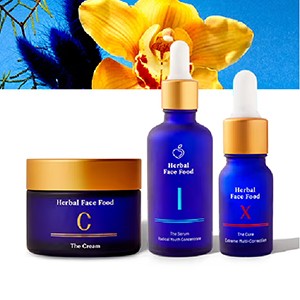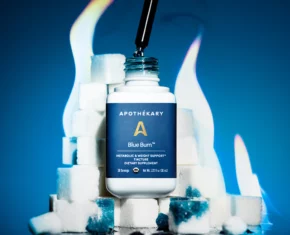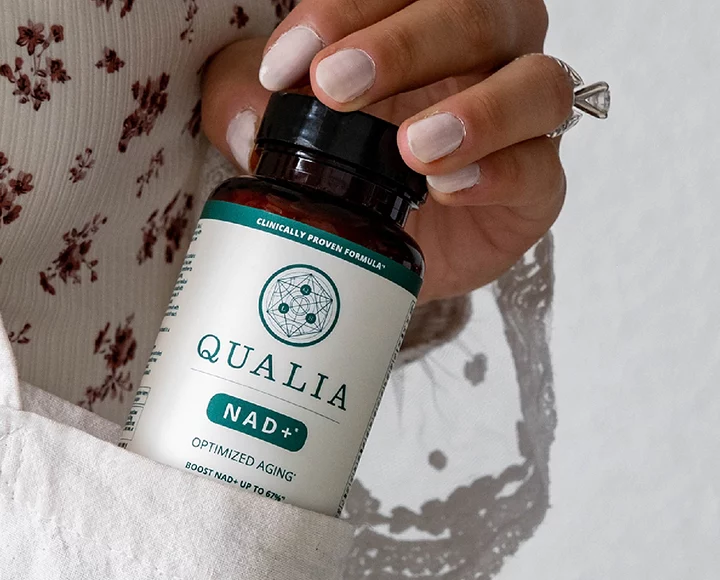Brown and splotchy isn’t the post-pregnancy glow you were hoping for — but you’re not alone. Melasma is a skin condition in which brown or ashy patches appear on the face. It’s a common occurrence for many women, especially after a major hormonal shift like pregnancy.
Our skin is our largest organ, and when something is off internally our complexion is often the first thing to take a hit. Melasma is not always permanent, but it’s also not something you have to endure if it makes you uncomfortable or unhappy.
Most of the conventional solutions for dealing with melasma are far from ‘TCM-approved’, meaning they’re not so natural — and can sometimes complicate skin issues even further.
During a recent facial with the redness whisperer, Courtney Chiusano, the L.A. facialist unloaded so much knowledge on us about dealing with melasma that we asked her to share more with readers! One thing Courtney didn’t include here officially, but that she mentioned to us privately, is that she’s seen clients melasma clear when they cut conventional wines out of their diet – wine specifically, not all alcohol. Although Chiusano is not a nutritionist, she’s responsible for some of the prettiest dermises in town, so we thought it was worth noting!
How To Heal Melasma
treat your skin gently. Melasma is an inflammatory skin condition. The urge to treat it aggressively often backfires, so stick with natural products. Use a gentle cleanser, gentle fruit enzymes and gentle acids along with calming serums and moisturizers. Look for brightening ingredients like alpha arbutin, licorice extract, vitamin C or mandelic acid — they all gently brighten the skin. Calming ingredients like calendula, chamomile, sandalwood and turmeric are wonderful to help alleviate inflammation. Also, stick to natural mineral makeup and stay away from ingredients like talc and bismuth oxychloride, which can irritate the skin.
Use SPF daily (but make sure it’s mineral). Stick to a mineral SPF because they reflect the sun’s rays, whereas chemical SPFs absorb them. When rays are absorbed, the heat gets trapped in the skin exacerbating pigmentation. Chemical SPFs are also more likely to irritate the skin. Reapply mineral SPF often when in the sun for extended period of time. TCM Editor’s Note: Check out a few of our current favorites here.
Try light therapy. LED light therapy is effective in promoting healing and regeneration of the skin, which is beneficial to controlling inflammation and pigmentation. At-home devices are easily available, or see a facialist that uses light therapy in her practice. It will be helpful for melasma.
Prioritize sleep + stress management. Poor sleep and stress can cause hormone imbalance which can stimulate melasma. Be sure to practice stress management through yoga, meditation or conscious breath work. Ensure you sleep a solid seven to eight hours at night — this is important to managing melasma.
Consider an anti-inflammatory diet.Overgrowth of yeast and inflammation in the body can contribute to melasma. So it is important not to feed these triggers. Avoid alcohol, sugar, processed foods, simple carbohydrates, caffeine and yeast. Load up on veggies (especially green, leafy ones), healthy fats and hormone/antibiotic-free meats. Also, drink plenty of water. TCM Editor’s Note: Learn all about candida yeast – a possible culprit. Also learn more about adopting an anti-inflammatory diet here
Consider supplements. Probiotics and collagen are effective in regulating gut health, which helps reduce inflammation and balance the skin. MSM, vitamin C and glutathione are also effective in reducing pigmentation. But always check with your doctor before starting a new supplement or dietary change.
Consider naturopathic medicine. Often melasma is caused by a thyroid disfunction, adrenal fatigue, copper toxicity, hormonal imbalance, leaky gut or a food allergy/intolerance. A naturopathic doctor can diagnose and treat your internal issues that may be contributing to melasma.
What To Avoid When Healing Melasma
Heat. Extreme heat exacerbates melasma — it stimulates the melanocytes. Avoid hot yoga, saunas, steam rooms and laying out in direct sun. Also, try to stay cool on trips to hot climates because general climate heat can still stimulate the pigmentation.
An aggressive skinCare routine. Melasma can worsen with trauma to the skin, so avoid anything too abrasive. This goes for intense scrubs, acid-based cleansers and toners, at-home peels or product overuse. Also, proceed with caution with harsh topical prescriptions or professional treatments. Some lasers can trigger more pigmentation in certain skin types so be sure to discuss this with your dermatologist.
Obsessing over it. The more you stress about melasma, the worse it is likely to get. Remember, stress is inflammatory and can affect your hormones. It’s important to think positively about your skin and do your best to be at peace with your skin condition — both will help it lighten over time when stress levels recede.
Overly intense exercise, but don’t skip it entirely. Exercise is important to skin health especially where melasma is concerned — it helps reduce stress and balance hormones. However, intense exercise can increase the heat in the skin or over-exhaust you, which can ultimately cause more pigmentation. Stick to light-to-moderate regular physical activity.
Have you dealt with melasma? What has helped you to heal your skin? Tell us in the comments!












